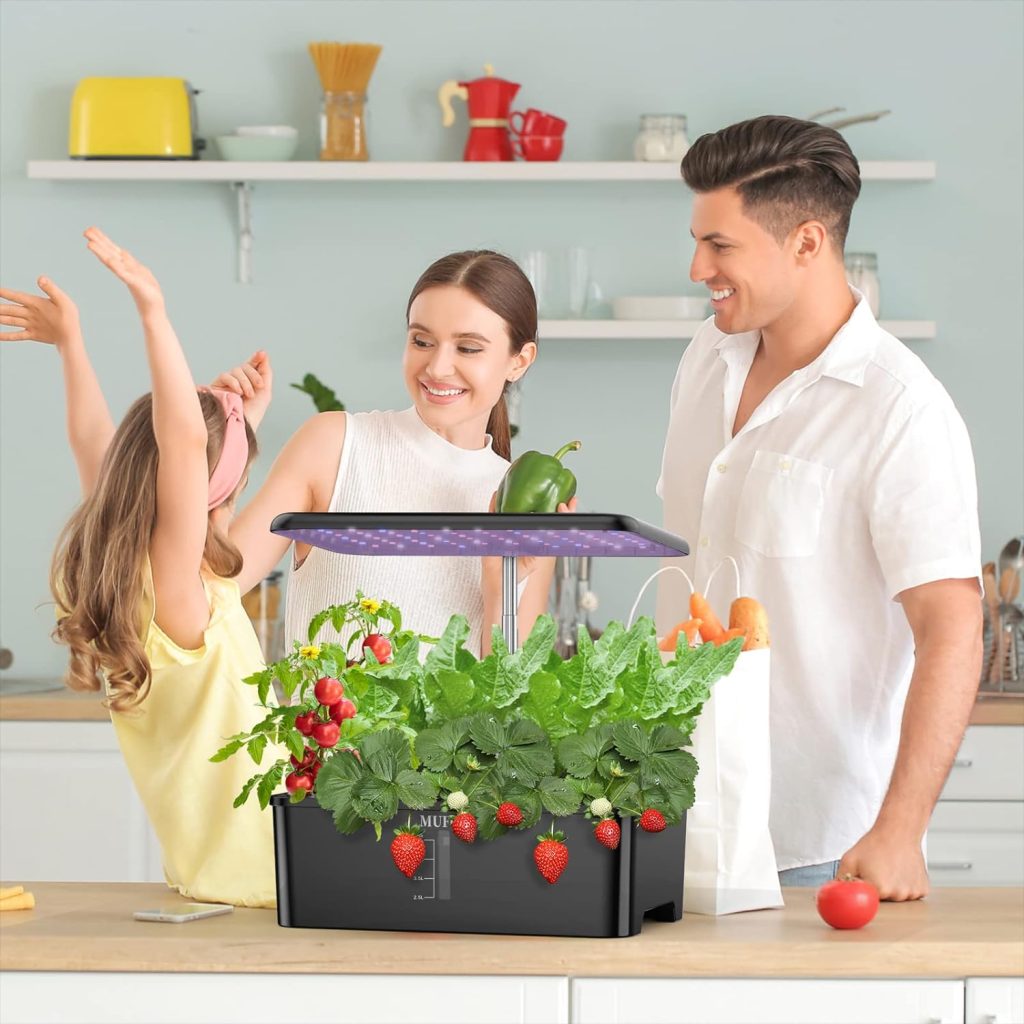Hydroponic and Aquaponic Systems
Hydroponic and aquaponic systems are revolutionizing the way we grow plants by providing sustainable and efficient alternatives to traditional soil-based methods. These innovative techniques offer unique advantages and are gaining popularity among gardeners, farmers, and enthusiasts worldwide.
Whether you’re a commercial farmer looking to increase efficiency and yield or a hobbyist gardener seeking a rewarding and eco-friendly way to grow plants, hydroponic and aquaponic systems offer viable solutions.
Embracing these technologies not only benefits individuals and communities but also contributes to the global pursuit of a more sustainable and resilient food system.
Hydroponic Systems
- Water-Based Nutrient Solution: Hydroponic systems utilize a nutrient-rich water solution to deliver essential minerals directly to plant roots. Basically, the system does not require the use of soil to grow produce.
- Optimized Growth Conditions: By controlling factors such as pH, nutrient levels, and water availability, hydroponic setups create optimal growing conditions. This results in faster growth rates and higher yields.
- Space-Efficient Design: Hydroponic systems are helps maximize space. This makes them ideal for urban environments or areas with limited land availability.
- Reduced Water Usage: These systems use water more efficiently than traditional farming methods. The water is recirculated within the system, minimizing wastage.
- Year-Round Cultivation: You can operate hydroponic setups indoors or in controlled environments. This allows for year-round cultivation regardless of external weather conditions.
Aquaponic Systems
- Symbiotic Relationship: Aquaponic systems integrate aquaculture (fish farming) with hydroponics. This creates a mutually beneficial ecosystem where fish waste provides nutrients for plants, and plants filter the water for the fish.
- Natural Nutrient Cycling: Fish waste contains ammonia. It is converted by beneficial bacteria into nitrates, serving as a natural fertilizer for plants.
- Enhanced Sustainability: Aquaponic systems require less water and produce minimal waste compared to conventional farming methods.
- Diverse Crop Cultivation: Aquaponics supports the growth of a wide range of crops, including leafy greens, herbs, vegetables, and even fruits.
- Educational and Community Benefits: These systems also offer educational opportunities for learning about ecosystems, biology, and sustainable agriculture.
Hydroponic and aquaponic systems represent innovative approaches to agriculture that address many of the challenges faced by traditional farming methods. By optimizing resource utilization, minimizing environmental impact, and providing opportunities for year-round cultivation, these systems offer a sustainable path forward for food production.

